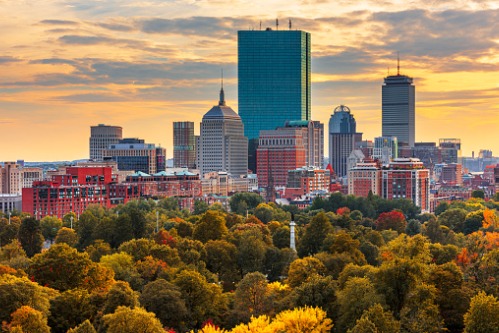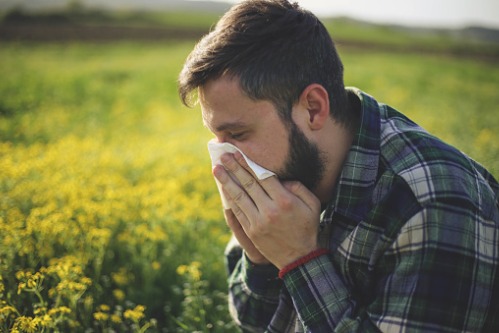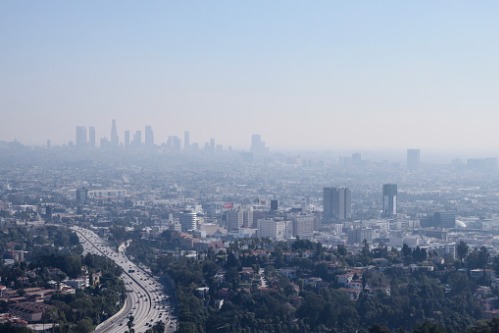
Which Plants Cause a Pollen Allergy in Massachusetts?
One of the most common triggers of seasonal allergies is pollen, a fine yellow powder plants produce for reproduction. This powder is transported from plant to plant via the wind, birds, and other animals. When plants release pollen into the air, people can inhale it, potentially leading to an allergic reaction. This is often referred to as hay fever or allergic rhinitis. Fortunately, there are treatments and ways to avoid reactions to a pollen allergy.
Types of Pollen that Cause Allergic Reactions
Trees, grasses, and weeds are the most common plants that cause pollen allergies. Each of these plants has specific seasons when they release pollen, ranging from early spring to late summer. Moreover, many of these plants are more prevalent in different regions throughout the United States. Consequently, recognizing the vegetation native to Massachusetts or your travel destination may help you plan ahead and protect yourself from potential allergic reactions. To help you know the types of pollen and specific plants to look out for, Northeast Allergy has highlighted some of the commonly found pollen-producing plants in Massachusetts and the Northeast region.
Tree Pollen
Tree pollen is typically produced during the spring and early summer (February-May) and is one of the most common causes of pollen allergy symptoms in the spring. This type of pollen is usually light and can be easily transported by the wind. Unfortunately, tree pollen season often overlaps with grass pollen season, causing many people to suffer from pollen allergies for an extended period of time.
There are many types of trees that are notorious for releasing high amounts of pollen into the air. Some of the most common in Massachusetts include:
- Ash
- Aspen
- Birch
- Elm
- Maple
- Oak
- Pine
- Hickory
- Willow
- Mulberry
Grass Pollen
When dealing with grass pollen, the region where you live plays a prominent role in when you might expect to experience symptoms. For example, grass pollen in the northern United States often shows up during late spring and early summer. However, in the southern regions of the US, many types of grass release pollen year-round. Summer is grass allergy season in Massachusetts, and the most common culprits include:
- Bermuda
- Timothy
- Redtop
- Ryegrass
- Sweet vernal
- Orchard grasses
Weed Pollen
Pollen from weeds is produced during late summer and fall. Ragweed is one of the most common weeds that cause an allergic reaction. This weed grows in most regions throughout the United States and releases large amounts of pollen capable of traveling hundreds of miles. This makes ragweed particularly hard to avoid. Other common weeds that cause allergies in Massachusetts include:
- English plantain
- Mugwort
- Russian thistle
- Wormwood
- Marsh elder
- Amaranth
- Orache
Symptoms of Hay Fever
Hay fever, also known as seasonal allergic rhinitis, is a common condition caused by an allergic reaction to pollen. The symptoms of hay fever may vary from person to person, but they typically include nasal congestion, sneezing, and itchy eyes.
Other common symptoms of hay fever include:
- Runny nose
- Watery eyes
- Itchy nose or throat
- Postnasal drip (mucus dripping down the back of your throat)
- Coughing
- Fatigue
- Headache
It’s worth noting that only some people who have hay fever will experience all of these symptoms. The severity of the symptoms may also vary from mild to severe. If you are experiencing hay fever symptoms, it is important to see a qualified allergist to find a solution. An allergist can perform a skin or blood test to determine if you have an allergy to pollen and recommend appropriate treatment options.
Ways to Prevent an Allergic Reaction to Pollen
Preventing an allergic reaction to pollen may be difficult, but there are several steps you can take to reduce your exposure to pollen and manage your symptoms. The following are some of the best ways to prevent an allergic reaction to pollen:
Keep an Eye on Pollen Counts
Staying up to date on pollen counts is vital in preventing an allergic reaction to pollen. Pollen counts are a measure of the amount of pollen in the air at a given time. During the pollen season, it is critical to check the local pollen count and stay indoors on days when the count is high. The higher the pollen count, the greater your chances of experiencing hay fever symptoms will be. Pollen counts are typically highest in the early morning and on warm, dry, and windy days.
Close Windows and Doors
Keeping windows and doors closed is an effective way to keep pollen out of your home and reduce your exposure to it. This is especially crucial during peak pollen hours, typically early morning and late afternoon. Using a HEPA filter in your home can also help reduce the amount of pollen in the air, reducing your risk of an allergic reaction.
Shower and Change Clothes
It is worth noting that pollen can linger on clothing, hair, and skin. To reduce your exposure to pollen, be sure to shower and change your clothes after spending time outdoors. This will help remove any pollen that may have accumulated on your body and reduce your risk of an allergic reaction.
Wear a Mask
Wearing a mask outdoors when pollen counts are high may be an effective way to prevent an allergic reaction to pollen. When choosing a mask, look for one with a good fit and seal around the nose and mouth to prevent the entry of pollen through gaps. Masks are particularly beneficial when outside doing yard work when you are likely to come into direct contact with pollen.
Use Nasal Sprays or Antihistamines
Using nasal sprays or antihistamines may be an effective way to prevent an allergic reaction to pollen. These medications can help relieve hay fever symptoms, such as sneezing, runny nose, and itchy eyes. Nasal sprays may reduce inflammation in the nasal passages and relieve nasal congestion. On the other hand, antihistamines work to block the effects of histamine, a chemical released by the body in response to allergens. It’s important to note that these medications may have side effects, so make sure to read the label and follow the instructions carefully. If you have any questions or concerns, it is best to consult with a qualified allergist.
Treat Your Pollen Allergy in Massachusetts with Northeast Allergy
If you suffer from hay fever, seeing a qualified allergist is one of the best ways to find relief. At Northeast Allergy, we provide personalized care to identify the cause of your symptoms and create an individualized treatment plan. In addition, we offer a wide range of services, including allergy testing, immunotherapy, and lifestyle modifications to help manage your pollen allergies. Contact us today to learn more about how we can help you find relief.



